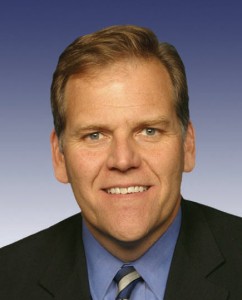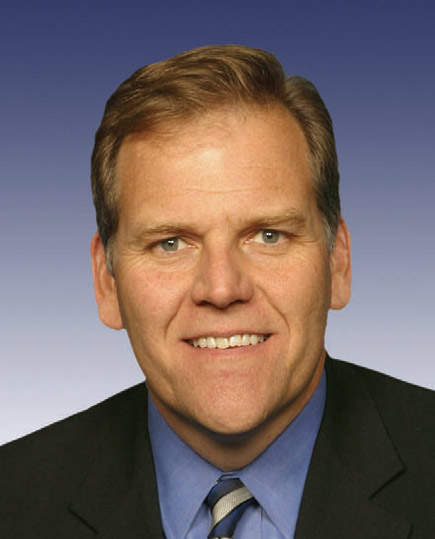
(MintPress) – After thousands of websites went dark in January in protest of the Stop Online Piracy Act (SOPA) bill and its counterpart, Protect IP Act (PIPA) – both restrictive Internet legislations – the bills were shelved and not revisited. After what was widely deemed a victory for the Internet community, new legislation takes aim at censoring the Internet in the form of the Cyber Intelligence Sharing and Protection Act (CISPA). The bill renews a push for Internet monitoring with the potential for censorship in the guise of cyber security and not anti-piracy measures originally seen under SOPA and PIPA.
CISPA’s sponsor, Rep. Michael Rogers (R-MI), already passed it through the House Intelligence Committee in 2011 with a 17-1 vote, with the support of over 100 representatives. It has yet to be voted on in the House or Senate.
CISPA aims to “provide for the sharing of certain cyber threat intelligence and cyber threat information between the intelligence community and cybersecurity entities, and for other purposes,” according to the written legislation. Provisions of the bill have some worried, however. The bill acknowledged that it creates a platform to monitor Internet activity for security threats, but critics say that the bill is far too vague to protect any consumer from government surveillance.
The legislation states that the “Director of National Intelligence shall establish procedures to allow elements of the intelligence community to share cyber threat intelligence with private-sector entities and to encourage the sharing of such intelligence.”
Taking Issue
Center for Democracy and Technology (CDT) representative Kendall Burman told Russia Today (RT) that the totality of the bill and vagueness of its language would allow the US government to disregard online privacy laws and involve itself in any form of online activity if the government deems it as a threat or potential cybercrime.
CDT issued a press release on the bill, claiming the legislation had the capacity to send private communications to the government without privacy oversight via Internet service providers (ISP).
“The bill does not specify which agencies ISPs could disclose customer data to, but the structure and incentives in the bill raise a very real possibility that the National Security Agency or the DOD’s Cybercommand would be the primary recipient,” press release.
The legislation’s ubiquitous references to “cyber threat,” cyber security” and “intelligence” nearly creates more questions than answers. In practice, many of the measures in the bill would seem to be under the discretion of the government, leaving Internet users with no prior knowledge as to what could trigger government surveillance of activity. Also appearing four times in the bill is the phrase “theft or misappropriation of private or government information.”
The American Civil Liberties Union (ACLU) wrote Rep. Rogers to oppose the bill, calling for an amendment to the bill to “include explicit collection and use limitations and rigorous oversight mechanisms” to make up for the vague language.
Currently, the bill lays out the intent to collect information on the ground of cyber security, but does not detail who would see collected information, what is done with the information and whether there is any oversight. The ACLU said those questions and more need to be addressed for this bill to be considered into law.
“Once an individual’s information is shared with the government, there would be no restriction on the use of that information. It could be used for any purpose whatsoever and shared with any agency. While such data might be used for cybersecurity purposes, there would be no bar on the government also using it to conduct fishing expeditions for criminal, immigration or other purposes,” the ACLU argued.
The Rise of WikiLeaks and Online Legislation
The Internet has become a target of bills proposed to safeguard and protect security or industries. Online freedom of expression was injected into America as a mainstream issue after the whistle-blowing website WikiLeaks published secret government information in the form of online cables. Since then, the US has focused its target on WikiLeaks, as the site has been shut down on multiple occasions by authorities.
The Electronic Frontier Foundation says shutting down a site for publishing truthful information is a violation of freedoms of expression. The US has also collected information on those who volunteer for WikiLeaks. Last October the US obtained court orders that forced Google Inc. and an ISP to disclose information from e-mail accounts of a WikiLeaks volunteer. The ISP went to court over the matter and lost the appeal.
Since then, the US pushed for two pieces of legislation that escaped the realm of national and cyber security and targeted anti-piracy measures. Last May PIPA was introduced in the Senate and supported by the film industry as a way to curb websites that offered copyrighted material for viewing or piracy. To do so, the Department of Justice would have needed to obtain a court order against a website it deemed to be in violation of copyright laws and serve it to search engines and domain name providers, forcing them to de-list the site.
Marvin Ammori, who works with Internet freedom issues, said the bill reached too far and included sites that simply contained copyrighted work, even if it wasn’t for download, such as YouTube.
“They are not even limited to sites guilty of any copyright infringement, direct or even contributory infringement,” Ammori wrote. “Instead, the bills would extend not only to foreign but also to domestic websites that merely ‘facilitate’ or ‘enable’ infringement.”
SOPA become the revised counter to PIPA last October and looked to accomplish the similar goal of countering the illegal online exchange of copyrighted material. Like PIPA, the bill called for court orders to ban advertising networks from conducting business with websites that facilitate copyright “infringement” and search engines from linking to those particular sites. Unlike PIPA, the law reached further to criminalize unauthorized streaming of copyrighted work, such as someone covering a song on YouTube.
The backlash led to around 7,000 sites, including English Wikipedia, participating in an Internet blackout in protest.
Ammori said the bills certainly took care of the piracy problem, but that innocent websites would have been punished and shut down as a result of how broadly sweeping the legislations were written.
“The bills are not limited; they’re sledgehammers not scalpels,” Ammori wrote.
The Internet has proven it can organize around a common cause, as seen with the shelving of PIPA and SOPA respectively. The Internet has been integral in shaping the Arab Spring movements in the Middle East and the subsequent Occupy movements in America and other places in the world. Burman said it is safe to say that legislators will feel pushback against CISPA for the same reason PIPA and SOPA fell through: it violates freedom of expression.
“One of the lessons we learned in the reaction to SOPA and PIPA is that when Congress tries to legislate on things that are going to affect Internet users’ experience, the Internet users are going to pay attention,” Burman said.


